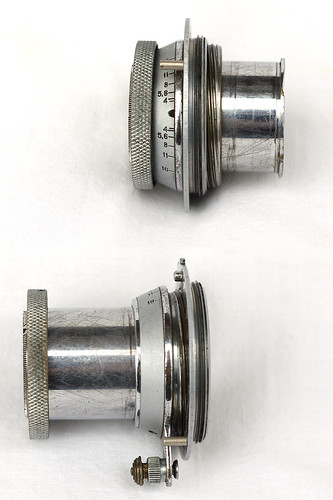Difference between revisions of "Collapsible lens"
m |
m |
||
| Line 9: | Line 9: | ||
|image= http://farm6.static.flickr.com/5009/5239583193_b87f430239.jpg | |image= http://farm6.static.flickr.com/5009/5239583193_b87f430239.jpg | ||
|image_align= left | |image_align= left | ||
| − | |image_text= A collapsable 50mm lens by [[KMZ]] for 39mm thread rangefinder cameras <br> by [http://www.flickr.com/photos/vox/ Voxphoto] {{ | + | |image_text= A collapsable 50mm lens by [[KMZ]] for 39mm thread rangefinder cameras <br> by [http://www.flickr.com/photos/vox/ Voxphoto] {{Non-commercial}} |
}} | }} | ||
{{stub}} | {{stub}} | ||
Revision as of 02:47, 28 January 2011
When a camera lens is focused at infinity, there is often ample air space between the rearmost lens element and the plane of focus.
This observation has inspired many camera designs which fold up, or otherwise retract their lenses into a stowed position. This can substantially shrink the size of the camera the user needs to carry. The idea carries through to today's point & shoot cameras, whose lenses telescope outwards for use, then whir back into the camera body when switched off.
But historically the term "collapsible lens" described an interchangeable lens, typically for rangefinder cameras. Because these bodies have no reflex mirror obstructing the cavity within, the entire optical unit may be retracted almost entirely.

|
| A collapsable 50mm lens by KMZ for 39mm thread rangefinder cameras by Voxphoto (Image rights) |
This article is a stub. You can help Camera-wiki.org by expanding it.